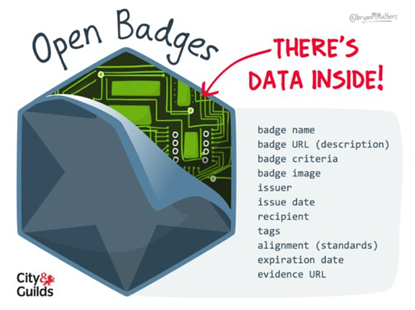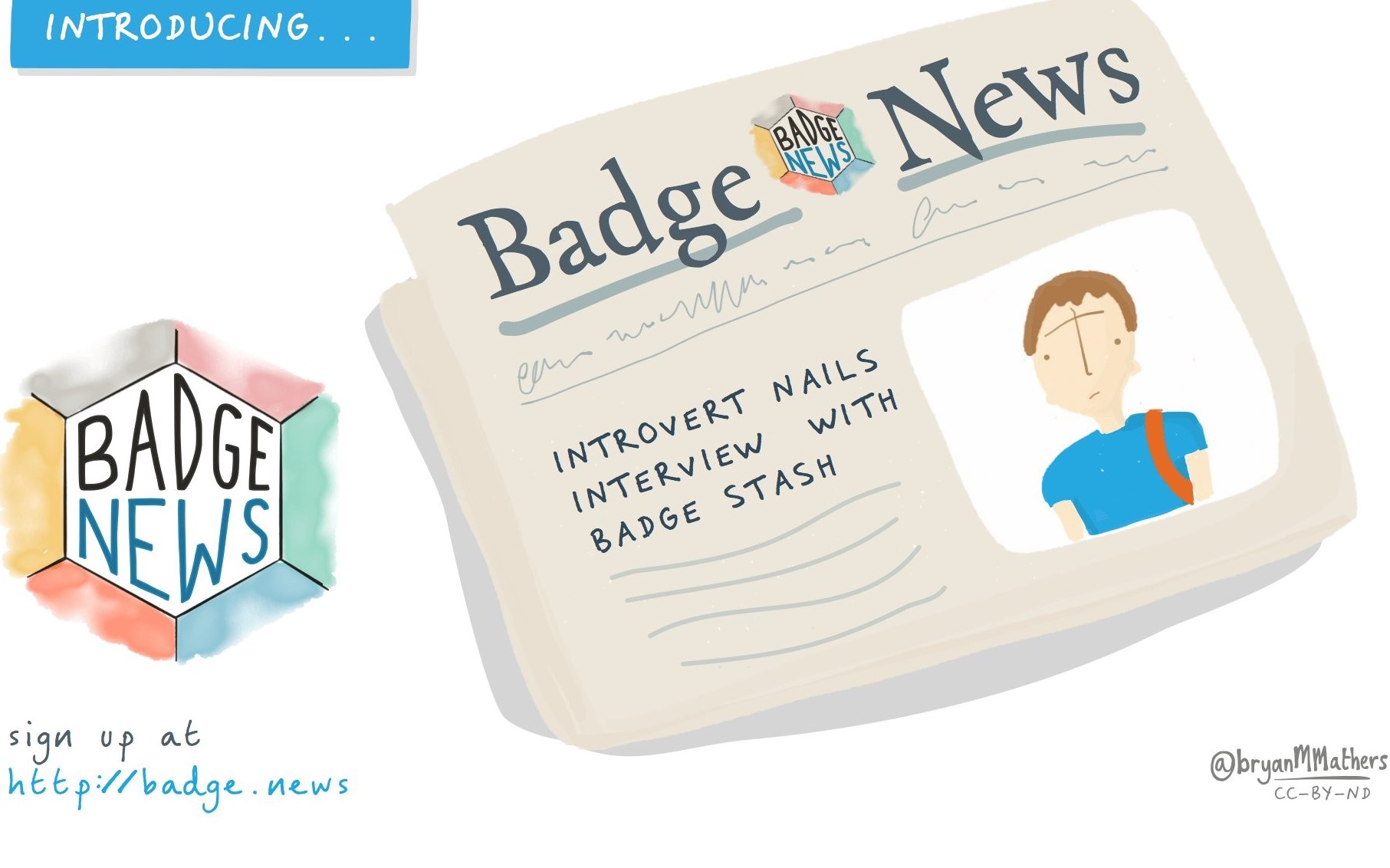Find out about The Open University's Education courses.
Digital badged courses, such as those on OpenLearn, have become a popular means of recognising achievement for learners, particularly in support of career development. Because they have been around for over ten years now, we know that they are used to recognise learning, to motivate, to provide a means of demonstrating professional development and to allow learners to showcase their unique strengths and interests.
But what does it mean to you, the badge earner, to have a digital badge these days?
OpenLearn's impact
The OpenLearn website was launched in 2006 to be a platform for free learning resources in support of the Open University’s (OU) commitment to its social mission. It now hosts thousands of articles, videos and several hundred courses, many of which issue digital badges.
The first UK lockdown in March 2020 saw an overnight five-fold increase in visitors to OpenLearn and by the beginning of 2022, OpenLearn celebrated the extraordinary goal of having served 100 million visitors since its launch in 2006. Now at the start of 2023, we are preparing to delivered our 250,000th digital badge.
Badged courses have fulfilled a need for the recognition of informal learning achievements and remain some of the most popular content on OpenLearn.
What have we learned?
Digital badges hold a special place in supporting a lifelong learning agenda because they can provide recognition for learning achievements throughout an individual’s life. On OpenLearn, the opportunity to earn a badge is a free encouragement for individuals to continue learning and acquire new skills.
Research undertaken during 2020 showed us that over half the audience at the time was using the platform because of events relating to the pandemic – a combination of furlough, redundancy, supporting others’ education, needing to improve online teaching skills or simply having more time to learn.Importantly, across the platform, 38% of learners declared they were using the platform to upskill for career development and 20% were working as educators at a variety of levels.
Badged courses have fulfilled a need for the recognition of informal learning achievements and remain some of the most popular content on OpenLearn. Of the 70+ badged courses, around 20 have been commissioned to support employability of informal learners and the OU’s own student body, including some of the so-called ‘soft skills’ needed by employers. such as leadership, resilience and communication skills.
 Representation of the digital nature of open badges. Source: Bryan Mathers.Digital badges are digital because, unlike a PDF or paper
certificate, achievements are baked into the badge and are verifiable to the
earner and issuer. That we now use digital
badges in higher education, signifies that not all learning has to be
recognised after years of study; bite-sized learning has a valid place either
standalone, or as part of a stack of other digital micro-credentials.
Representation of the digital nature of open badges. Source: Bryan Mathers.Digital badges are digital because, unlike a PDF or paper
certificate, achievements are baked into the badge and are verifiable to the
earner and issuer. That we now use digital
badges in higher education, signifies that not all learning has to be
recognised after years of study; bite-sized learning has a valid place either
standalone, or as part of a stack of other digital micro-credentials.
Digital badges contain metadata particular to the skills
gained, the issuer and the recipient, and can be used to digitally match badge
earners with employment opportunities. They are considered to be a core
component of the micro-credentials landscape, recognising skills and
educational achievements that are not degree-shaped. Hence, with their
association to recognise employability competencies, they can form a useful adjunct
to formal education alongside traditional academic endeavour.
Digital micro-credentials as recognition for learning
In 2014 we took the brave step of developing open badges for
OpenLearn, aligning with the start of mass issuing of
digital badges via the many thousands of Moodle learning platforms worldwide. In considering the ever-shifting digital skills shortage in the workforce, bite-sized learning, rewarded with digital badges is an easy-to-deploy tool for educational institutions to serve not only their formal students, but non-formal learners who may otherwise have been excluded from formal education.
For OpenLearn, this resulted in the commissioning of a range of 'soft skills' and basic skills mastery courses to bolster both our own students' employability and core skills, and anyone else who found these materials online.
Further, by developing the link between OpenLearn badges and the formal student record in 2018, university Associate Lecturers were able to see what badges students had earned and, in doing so, prompt those to engage with OpenLearn if necessary.
Open University students now display their formal learning achievements (modules and qualifications) alongside their OpenLearn badges publicly via their OpenLearn profile. In short, they don’t have to wait until they graduate to show a prospective employer what they’re capable of. It also signals that they're willing to go the extra mile and augment their academic knowledge with core skills needed for modern employment.
This is very important for a university who has no barriers to entry. In other words, many Open University students have the odds are stacked against them in terms of prior learning: students earn while they learn, fitting study around their careers and their caring responsibilities.
What do OpenLearners do with their digital badges?
It is important to keep interrogating what our learners do with their digital badges if we are to meet them with good commissioning decisions and to support the digital skills shortage. Earlier this year, a review of 26,000 survey responses by OpenLearn badge earners showed us that 86% of them intended to share their badge in places other than their OpenLearn profile, with LinkedIn, Facebook and their employer being the top three places.
Few studies exist that examine the perception of digital badges by employers, although OpenLearn survey data show that they have a professional value to learners with 82% declaring that they would be sharing their achievement with an employer or prospective employer. How digital badges can signal professional development achievements. Source: Bryan Mathers.
How digital badges can signal professional development achievements. Source: Bryan Mathers.
When asked if learners thought whether the digital badge was more important to them than a printable certificate, 64% said that they were both equally important, 22% that the certificate was more important and 10% that the badge was more important. Data show that badges offer a sense of achievement in a free learning context, a tool for motivation and to gain branded (or co-branded) university recognition.
Use of digital badges by other universities
In 2021 I ran another study inviting universities in the UK and Ireland to report on their use of digital badges in order to ascertain how their use had developed in higher education. Of the 27 universities who responded, 50% said they were currently using digital badges, with a further 32% declaring plans to implement them.
Various uses were identified, the most prominent (79%) for providing a means to motivate students, and by implication to support student retention. Over half felt that digital badges provided value in enhancing students’ employability skills, particularly in recognition of so-called ‘soft skills’ such as leadership, collaboration, teamwork, resilience etc.
This work has grown enormously over the last 10 years since the inception of digital badges, where there were a handful of pilot projects in higher education, experimenting with the technology and badges' potential in instructional design. What's needed next, is connecting these now numerous endeavours by educational institutions, to discuss how we might develop frameworks for those core skills for which many of us are rewarding digital badges.
So what next?
In support of our overall endeavour to engage people in lifelong learning, it is important that we attempt to find hard-to-reach adults – to meet them where they are. With good search engine optimisation, and with a platform that openly indexes all its free resources, we are able to sit front and centre in internet searches around the topics we teach. Learning is flexible, self-paced and in multiple formats. It’s relevant, topical and for many of OpenLearn courses, it is rewarded with a digital badge.
As we celebrate the extraordinary achievement that is the issuing of our quarter of a millionth digital badge, it’s heartening to reflect that the initial drive to enable digital credentials on one of the world’s largest free learning platforms has brought dividends to educators, to institutions, to our students and to our global body of OpenLearn learners. This milestone provides us with an opportunity to reflect on and celebrate how we meaningfully reward non-accredited learning achievements at scale for those who need them most.



Rate and Review
Rate this article
Review this article
Log into OpenLearn to leave reviews and join in the conversation.
Article reviews